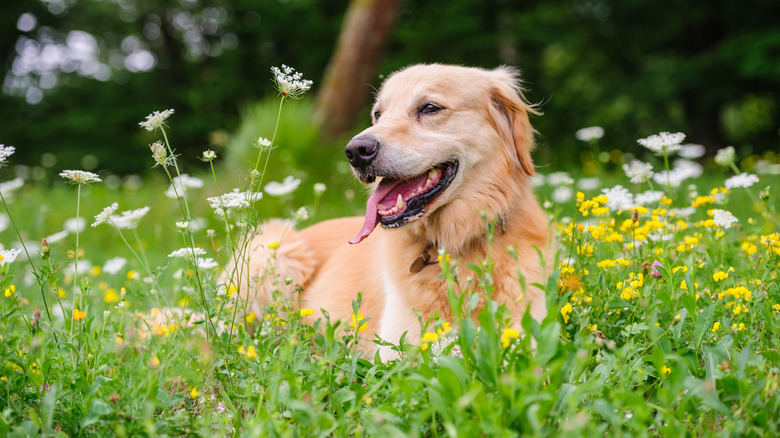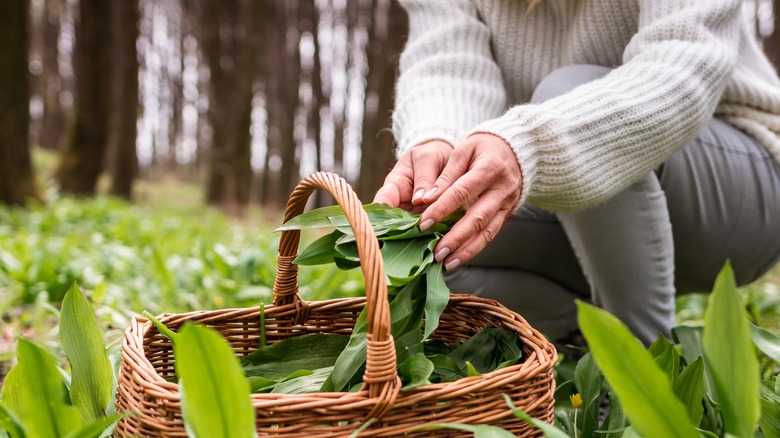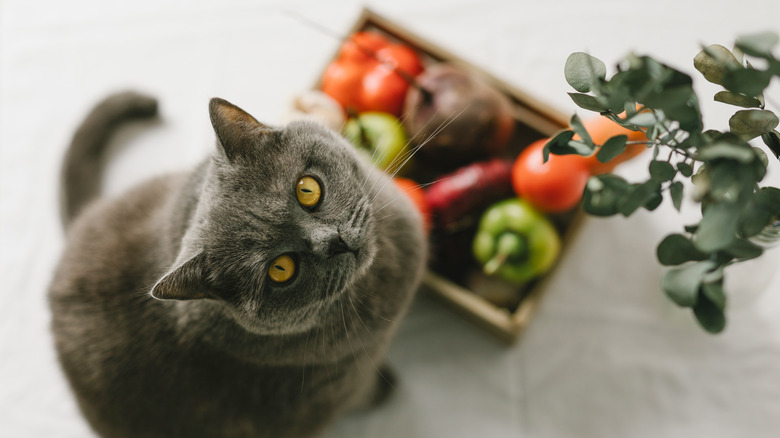Avoid Growing This Popular Vegetable In The Garden If You Own A Pet
Most pet parents take great precautions when it comes to protecting their pets from harm. One of the most common ways that cats and dogs get ill is by ingesting something that makes them sick. Some things like household cleaners, disinfectants, and plants are widely known as being harmful when pets eat them, which is one reason why you'll want to avoid planting garlic in your garden.
Garlic belongs to the genus known as allium. It is one of the easiest plants to grow in pots or in a garden. It can grow well in small spaces and you can plant it in the fall weather as well as in spring and summer. Although it may be a gardener's dream, it is highly toxic to pets.
This may come as a surprise to many since garlic has a bevy of health benefits for humans. In people, garlic can lower blood pressure and cholesterol, reduce dementia risk, and boost the immune system. Yet in cats and dogs, it can pose a big health hazard.
How garlic can poison cats and dogs
Believe it or not, cats and dogs can become poisoned by garlic. Other alliums such as onions, chives, and leeks are also harmful to pets but not as intensely as garlic is. In fact, when pets ingest garlic, it is five times as toxic as when they eat onions.
Whether cats and dogs chomp down on garlic a lot all at once or eat some every day while out in the yard, it can be fatal, advises Bloorcourt Veterinary Clinic. The first signs of garlic poisoning can be drooling, abdominal pain, vomiting, and diarrhea. Yet it can also cause red blood cells to become damaged so they may also exhibit lethargy, pale gums, and rapid heart and respiratory rates as they become anemic.
In extreme cases, it can cause anemia because the red blood cells aren't getting proper oxygen. Consequently, when the toxicity becomes severe, it can cause low blood pressure and result in an inability of the blood to clot properly.
Cats are more affected than dogs
Unlike cats, dogs tend to eat anything and will overeat with ease. Though cats are usually pickier when it comes to eating and may not eat a lot of garlic at once, the plant can affect them more. Cats have a smaller amount of specific liver enzymes so in essence have less ability to break down toxic substances. As a result, they are more susceptible to becoming sick when ingesting something they shouldn't.
Besides garlic and onions, you'll also want to avoid planting other members of the allium family in your garden. This includes chives, leeks, and scallions. Other seemingly innocent plants can also hurt your pets to a lesser extent.
Tomatoes, potatoes, and peppers can cause great distress in cats and dogs (via Animal Behavior College). The leaves and stems of these nightshades are toxic. The spectrum of illness from eating nightshade plants can range from mild stomach disturbance to affecting the brain and nervous system. It can also cause cardiac problems. If there is ever a question about which plants are safe for pets, check with your vet before planting.


